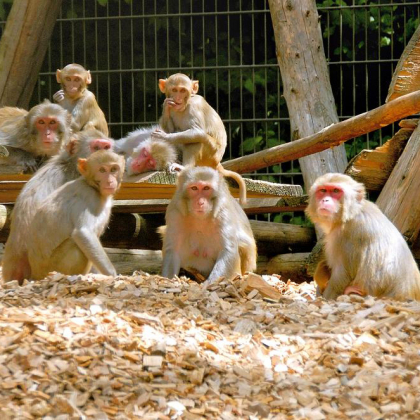Bernstein Network News. Find the latest news from our researchers regarding current research results, new research projects and initiatives as well as awards and prizes.
Analysing internal world models of humans, animals and AI
A team of scientists led by Prof. Dr Ilka Diester, Professor of Optophysiology and spokesperson of the BrainLinks-BrainTools research centre at the University of Freiburg, has developed a formal description of internal world models and published it in the journal Neuron. The formalised view helps scientists to better understand the development and functioning of internal world models. It makes it possible to systematically compare world models of humans, animals and artificial intelligence (AI). This makes it clearer, for example, where AI still has deficits compared to human intelligence and how it could be further developed in the future. Eleven Freiburg researchers from four faculties were involved in the interdisciplinary publication.
How star-shaped cells increase flexible learning
Star-shaped glial cells, so-called astrocytes, are more than just a supporting cell of the brain. They are actively involved in learning processes and interact with the nerve cells. But what exactly is it that astrocytes do? Researchers at the University Hospital Bonn (UKB) and the University of Bonn are using a biophysical model to clarify how astrocytes interact with nerve cells to regulate rapid adaptation to new information. The results of the study have now been published in the renowned journal "Nature Communications Biology".
Penghao Qian from China receives the Brains for Brains Award 2024
With the Brains for Brains Award, the Bernstein Network Computational Neuroscience honors young scientists who pursue a career in computational neuroscience and whose publication portfolio reveals outstanding merit at a very early stage of their careers. This year’s Brains for Brains Award, endowed with € 2000, goes to Penghao Qian from China. It enables Qian to visit the Bernstein Conference and exclusive laboratories in the field of computational neuroscience in Germany. The award will be presented at the Bernstein Conference on October 2, 2024, in Frankfurt am Main.
The Significance of Software in the Field of Science
A group of 14 scientists, the majority of whom work or have worked at the Käte Hamburger Kolleg: Cultures of Research (c:o/re) at RWTH Aachen University, has published an article on the lack of attention paid to software in "Nature Computational Science".
Update of the Julich-Brain Atlas – new data for brain models
Release 3.1 of the Julich Brain Atlas has been published and can be freely downloaded through the EBRAINS research infrastructure. The updated brain atlas now gives online access to 52 new probability maps of cortical and subcortical structures in a three-dimensional reference space. Programming interfaces for the computational neurosciences simplify the integration of the data into brain models.
From dawdling to doing: the science of procrastination
Procrastination, the deliberate but detrimental deferring of tasks, has many forms. Sahiti Chebolu of the Max Planck Institute for Biological Cybernetics uses a precise mathematical framework to understand its different patterns and their underlying reasons. Her insights could help tailor individual strategies to tackle the issue.
Like ripples in the sand: the young cerebral cortex forms spontaneous patterns
The cortex allows us humans to think, perceive our environment and act purposefully. Certain patterns of brain activity enable this; they emerge early in brain development through dynamic processes of self-organisation. This is shown by researchers from the University of Minnesota (UoM) and the Frankfurt Institute for Advanced Studies (FIAS) in a study published in Nature Communications. They found that the networks of the young cortex convert unstructured input into highly organised activity patterns. The organisation of these patterns is therefore not determined externally (e.g. by sensory input), but arises through interaction between the nerve cells and follows dynamic laws.
BIH Researchers develop theory on traveling waves of activity in the human brain
Researchers at the Berlin Institute of Health at Charité (BIH) have used brain simulations to develop a theory on the formation of traveling waves of activity. These waves influence cognitive processes in the human brain such as learning or remembering. Understanding traveling waves of activity can support in treating patients with cognitive disorders.
Seeing not just with the eyes: degree of arousal affects perception
The brain modulates visual signals according to internal states, as a new study by LMU neuroscientist Laura Busse reveals.
The right frame determines the movement
Knowledge of spatial reference systems is necessary for the control of neuroprostheses.
















